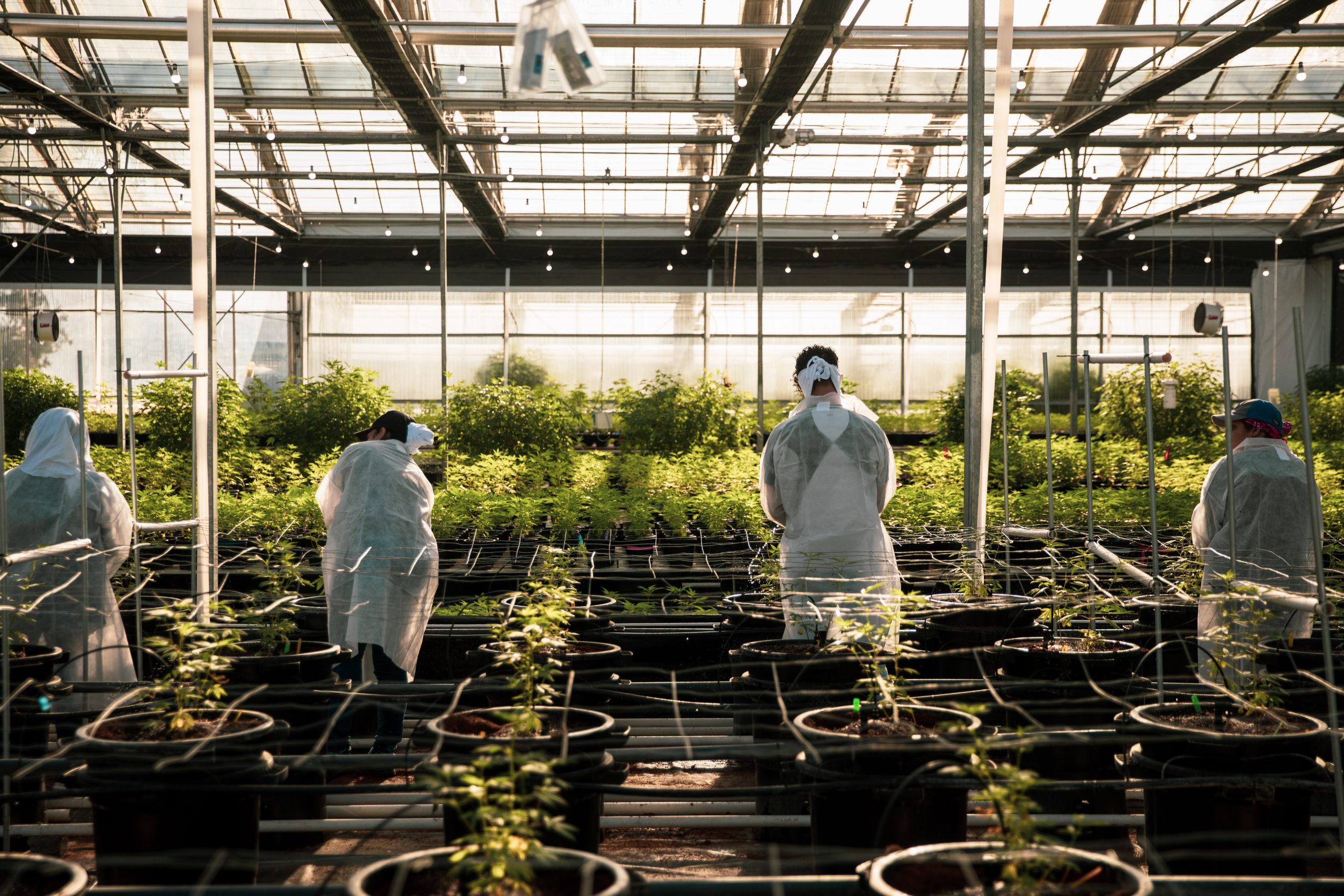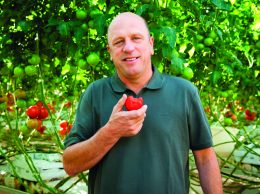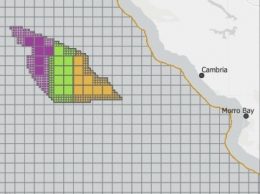Glass House to buy dispensaries linked to SLO County bribery scandal
IN THIS ARTICLE
- Latest news Topic
- Jorge Mercado Author
By Jorge Mercado Friday, May 13th, 2022

NOTE: This article was posted May 13 and updated May 17 to add comments from Graham Farrar of Glass House Brands and from the city manager of Grover Beach.
Carpinteria-based cannabis company Glass House Brands is buying three dispensaries from Natural Healing Centers, the company at the center of a bribery scandal in San Luis Obispo County.
The three dispensaries are in Morro Bay, in San Luis Obispo County; Lemoore, in Kern County; and Turlock, in Stanislaus County, near Modesto. The Turlock location is fully permitted and set to open later this year, while the other two are already operating, Glass House said in a May 12 news release.
Glass House President Graham Farrar told the Business Times the acquisition is important because the three locations are in limited license counties, meaning only a set amount of retail dispensaries will be approved by the local governments.
“The second piece is, synergy with our brands is really important,” Farrar said. “Typically in our stores, our brands represent about 25% of what we sell. … This really helps our brands because we control the shelves.”
Natural Healing Centers was founded and owned by Helios Dayspring, who pleaded guilty last year to federal charges that included bribing a San Luis Obispo County supervisor to obtain permits for cannabis farms and dispensaries.
Dayspring is awaiting sentencing and has transferred ownership in Natural Healing Center to his girlfriend, Valnette Garcia. Garcia did not respond to a request for comment from the Business Times.
Farrar confirmed that Dayspring has no involvement with Natural Healing Center and played no role in the Glass House acquisition. Dayspring’s connection to the dispensaries “whittled the field” of potential buyers, Farrar said, and meant Glass House had to exercise “a certain amount of care” in the purchase.
“I think we have a really good reputation and especially locally here on the Central Coast … so that makes us a safe and reliable choice to work with these cities,” Farrar said.
Glass House will pay $22.6 million for the three dispensaries, including $5.7 million in cash and the rest in stock. Glass House trades on a Canadian stock exchange and closed at $3.82 on May 17, up 14% from its closing price on May 12, just before the acquisition was announced.
Farrar said a deal like this would not have been possible had the company not gone public last year, via a special purpose acquisition company.
“This is actually a significant part of why we went public. Being public gives you not only cash, but it also gives you a second currency in the form of equity,” Farrar said. “Unlike dollars, which we can’t just print, we can issue new shares when we think there’s deals that are creative for us.”
Glass House said it aims to complete the deal by the time the Turlock store opens, and will own 100% of all three dispensaries.
After the sale, Natural Healing Center will have one location, in Grover Beach.
According to Dayspring’s plea agreement, there was no bribery involved in obtaining the permits for the three dispensaries in the Glass House deal.
After Dayspring’s crimes came to light, the city of San Luis Obispo revoked the permit for a Natural Healing Center dispensary in its city, though there was no evidence of a bribe there, either. In Grover Beach, Dayspring admitted to attempting to bribe the mayor, who did not accept the offer.
Grover Beach City Manager Matthew Bronson told the Business Times via email that the city conducted an investigation into the business in July, concluding in October. It found that since the opening of the store in 2018, there had been no impropriety in Natural Healing Center’s operations or violations of city or state regulations.
As a result, Bronson said, the city will not revoke the dispensary’s permit or take any further action against it.
Glass House is also in the process of buying a dispensary in Los Angeles and plans to open storefronts in Isla Vista, Santa Ynez and Eureka later this year. The Natural Healing Center acquisition will give the company 10 dispensaries in California, in addition to cannabis greenhouse farms in Santa Barbara and Ventura counties.
Glass House generated $21.7 million in revenue from its three wholly-owned dispensaries in 2021. It is projecting up to $60 million in revenue in 2022 from its retail dispensaries.
Based on the current performance of Natural Healing Center’s dispensaries and the market fundamentals in Turlock, Glass House said the Turlock store alone could eventually achieve annual revenues of approximately $10 million, with an earnings before interest, taxes, depreciation and amortization of roughly 20%.
“Given NHC’s positioning in limited license markets and its strong consumer following, we are excited to be adding these three dispensaries,” Glass House CEO Kyle Kazan said in the company’s news release announcing the acquisition. “We are now poised to execute a dramatic transformation in the size of our retail dispensary business this summer. … This further reinforces our trajectory to becoming cash flow positive by early 2023.”
Glass House recently announced a net loss of $19.8 million in the first quarter of 2022.
Dayspring, who also goes by “Bobby,” is awaiting sentencing for bribery and tax evasion and is likely to serve up to 41 months in federal prison. He owned Natural Healing Center until last year, when he admitted to bribing the late San Luis Obispo County Supervisor Adam Hill.
In his plea agreement, Dayspring said he paid Hill $32,000 in under-the-table cash and money orders between 2016 and 2019, along with free cannabis products and meals for the supervisor.
Dayspring also admitted to underreporting his taxable income by around $9 million between 2014 and 2018, resulting in an underpayment to the IRS of $3.4 million.
For 2018, for example, he reported taxable income of $1.26 million when his actual income was more than $6.5 million.
Hill died by suicide in August 2020 after taking a leave from the board to seek mental health treatment. He had previously attempted suicide in March 2020, on the same day the FBI searched his home and his office in the county government building.












